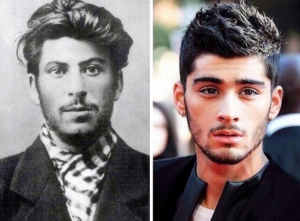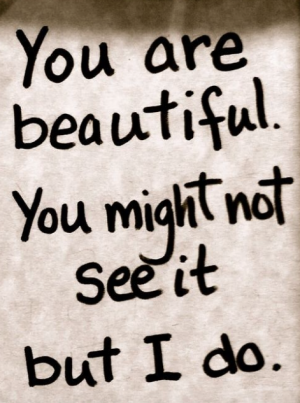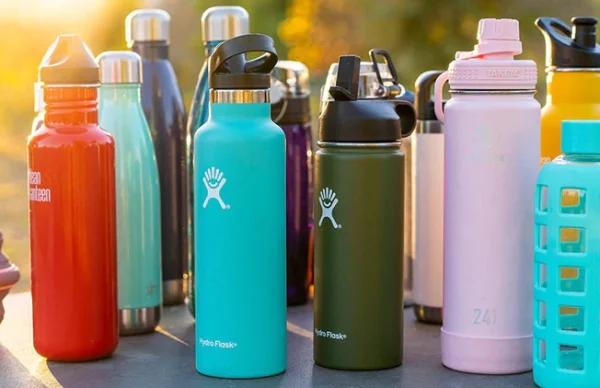My Opinion on the Beauty Movement
March 7, 2016
Every time I read an “encouraging-body-positive-all-positive-love-everyone” teenage magazine, I always find articles like these:
“Everyone is beautiful.”
“We are all beautiful.”
“You are beautiful, whether you know it or not.”
While I understand why they say these things, it makes me cringe and turn away because it is not true, and it is counterproductive to their purpose. The message behind these articles is true: we are all important, valuable, and we all deserve love. But the truth is, we are not all “beautiful.”
Taking the word at face value, beautiful means appealing to the eye, aesthetically pleasing. The literal definition refers to our appearances; therefore, “inner beauty” cannot exist unless innards can be aesthetically pleasing. (Then by all means, you do you Frankenstein.)
Some people are hilarious. That doesn’t mean they’re beautiful; it means they have an amazing sense of humor, which is charming. Other people are optimistic and their positive energy is great to be around. That does not mean they’re beautiful; it means they have a wonderful personality. Others are extremely charitable. That does not mean they’re beautiful; it means they are generous, nice, and kind—all fantastic qualities that cannot be determined by outer appearance alone. We should recognize these qualities for what they are (personality traits!) instead of labeling them as something they are not.
On the other hand, being beautiful doesn’t define your personality traits. Look at young Stalin:

He looks like Zayn, but he was not a cool guy; I can tell you that much.
Beauty is only a trait. No one ever tells me, “you’re an amazing pianist whether you know it or not” because I hate piano and I’m terrible at it! No one ever tells me nor will tell me, “you’re good at soccer to somebody” because I’m horrible, as evidenced by my disastrous tryouts last semester.
But a quote on tumblr will tell me (and everyone else) that:

(The person who put this up isn’t even a mutual follower! He/she wouldn’t know what I look like.)
So how did we get this far with such an obvious flaw in logic? How did everyone manage to get a free pass on beauty? Ah, the wonderful saying, “Beauty is in the eye of the beholder.”
Contrary to popular belief, evidence suggests that an objective standard of beauty does exist. A group of scientists experimented to find out if culture and/or exposure to media affected beauty preferences. They gathered a group of native Korean, Japanese, and White, Black, and Hispanic American adults in their early 20s and had them rate photographs of women from different races on a scale of 1 to 8. After multiple experiments, all slightly altered to prove different hypotheses, the results appeared to be consistent for men and women, and congruent across the different cultures. It was concluded that exposure to media did not affect facial preferences (Cunningham 68.2: 261-279). This study reinforced an existing, objective standard of beauty, at least in terms of facial features, across different cultures and genders.
Similarly, there was a study testing facial preferences between infants and adults. Like the prior experiment, adults were told to rate the attractiveness of faces on a scale of 1 to 5. Then, the same faces were presented to infants, 2-8 months old, and the infants displayed preferences for the faces considered attractive by the adults (Langlois 23.3: 363-9).
These two studies challenge the idea that beauty is in the eye of the beholder because, like it or not, even the eye of the beholder seems to possess a predisposed preference for “beautiful” faces.
I’m not writing this article to hurt or insult anyone. I simply want to shed light on this “beauty pandemic.” By saying everyone is beautiful, we’re implying that everyone needs to be beautiful. The true message we want to send people is that they’re valuable and important. However, wrapping their worth in “beauty” presses that people have to be beautiful (an adjective with implications of physical appearance) in order to be valuable and important. Counterproductive, right?
Accepting that beauty is like any other trait will make life significantly easier. It’s true that physically attractive people get social advantages, but all of our traits come with some sort of unique advantage. Some people are cheerful; others are sarcastic; these distinctive traits are all part of our character. We may not all be beautiful, but all of our features make us, well, us! So accept these gifts as they are and don’t group these special qualities within the ridiculously generic words “inner beauty.”













Lindsey McAllister • Mar 7, 2016 at 8:25 pm
I love your article and strongly agree with your argument!